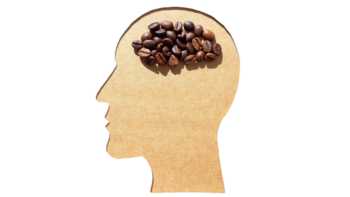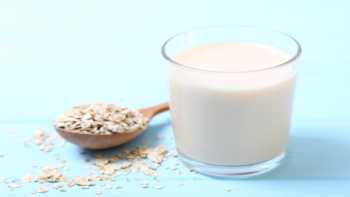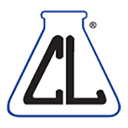- Home
- / CL Answers
- / Does drinking coffee deplete vitamins or minerals, such as magnesium, in the body? Can adding magnesium or other minerals reduce the acidity or improve the flavor of coffee?
www.consumerlab.com/answers/does-coffee-deplete-magnesium/coffee-magnesium/
Save to favorites
This feature is restricted to active members.
Join now to save favorites and get all member benefits, including over 1,400 reviews.
Join NowAlready a member? Sign in here.

Our Members Asked:
Does drinking coffee deplete vitamins or minerals, such as magnesium, in the body? Can adding magnesium or other minerals reduce the acidity or improve the flavor of coffee?

Answer:
Coffee may reduce the absorption or increase the excretion of certain vitamins and minerals, although in some cases the impact is not clinically significant and, in other cases, can be avoided by separating the timing of coffee and nutrient intake.
Sign in as a member to learn how coffee intake affects the absorption and blood levels of B vitamins, calcium, iron, and magnesium, and learn how magnesium, potassium, and eggshells may affect the flavor of coffee. Also find out if collagen, added to hot coffee, may get destroyed by the heat.
In addition the results of its expert testing, ConsumerLab uses only high-quality, evidence based, information sources. These sources include peer-reviewed studies and information from agencies such as the FDA and USDA, and the National Academy of Medicine. On evolving topics, studies from pre-print journals may be sourced. All of our content is reviewed by medical doctors and doctoral-level experts in pharmacology, toxicology, and chemistry. We continually update and medically review our information to keep our content trustworthy, accurate, and reliable. The following sources are referenced in this article:
- Aditya, J Food Process Eng 2020
- Azoulay, J Gen Intern Med 2001
- Bergman, Life Sci 1990
- Bozec, Biophys J 2011
- Herndon, J Agric Food Chem 2014
- Pangborn, J Food Sci 1971
Join today to unlock all member benefits including full access to all CL Answers and over 1,400 reviews.
Join NowAlready a member? Sign In Here.
Join now at www.consumerlab.com/join/
 4 Comments
4 Comments
Join the conversation
Submit your comment
This feature is restricted to active members.
Join now to add comments and get all member benefits, including over 1,400 reviews.
Join NowAlready a member? Sign in here.

Agree to Comment Terms
Please abide by the following:
- If you make a statement of fact, such as whether a type of treatment does or does not work, state your basis -- such as personal experience or a published study.
- If you make a positive or negative comment about a product, note whether or not you have a financial interest in the product or in a competing product.
- Please be respectful in your tone.
- Please do not submit any type of HTML markup or scripting as it will not be accepted, nor will posts that exceed 2,500 characters.
For your privacy, only your first name (from your account) followed by a random number will appear with your comment. Your last name and email address will not be displayed.
Your comment has been submitted
We will review your comment before it is posted.

Latest Research Updates (Clinical Updates)
Adding Collagen to Coffee?
January 17, 2023
Some people supplement with collagen by mixing it in their coffee. Does that ruin the collagen? Find out in our updated CL Answer about the effects of coffee on nutrients. (Also see our Collagen Supplements Review, which includes our Top Picks among products.)
Coffee's Effect on Vitamins & Minerals
December 20, 2022
Can coffee reduce the absorption, or increase the loss, of certain vitamins and minerals? Yes, it can. Find out which nutrients are affected, and what steps can be taken to reduce these effects of coffee in our updated Answer about coffee and nutrient absorption/depletion.
Eggshells for Coffee?
November 18, 2022
A CL member asked if adding crushed eggshells to coffee could reduce its acidity. Find out what research suggests in our Updated CL Answer about reducing the acidity and improving the flavor of coffee.
Related CL Answers (6)

Related Content
Join over 95,000 Members
Find the best products with instant access to our latest tests & reviews of over 1,400 health products.
Save money by finding high-quality products at lower cost.
Stay safe with the latest clinical findings, warnings, and expert answers.
Suggest products to test.
Stay informed with our e-newsletter.
Ratings of ConsumerLab

The "Updated" date indicates when new information was most recently added to this article. In the full article, the newest information is highlighted in yellow.















Sweed
September 09, 2023Good thinking!
Reply to this post…
Joy14506
September 08, 2023What are the methods used to decaffeinate teas? Which products use the safer methods?
 ConsumerLab.com
ConsumerLab.com
September 19, 2023Information about processes used to decaffeinated teas can be found in the following section of our Green Tea Review: https://www.consumerlab.com/reviews/green-tea-review-tea-bags-matcha-supplements/green-tea/#egcg-in-decaffeinated-tea
Reply to this post…
Marco14505
April 16, 2023I add, on some acidic coffees, a pinch (or two) of sodium bicarbonate to the coffee filter before brewing it, and that helps a lot. Then, I stop buying that particular type of coffee.
Reply to this post…